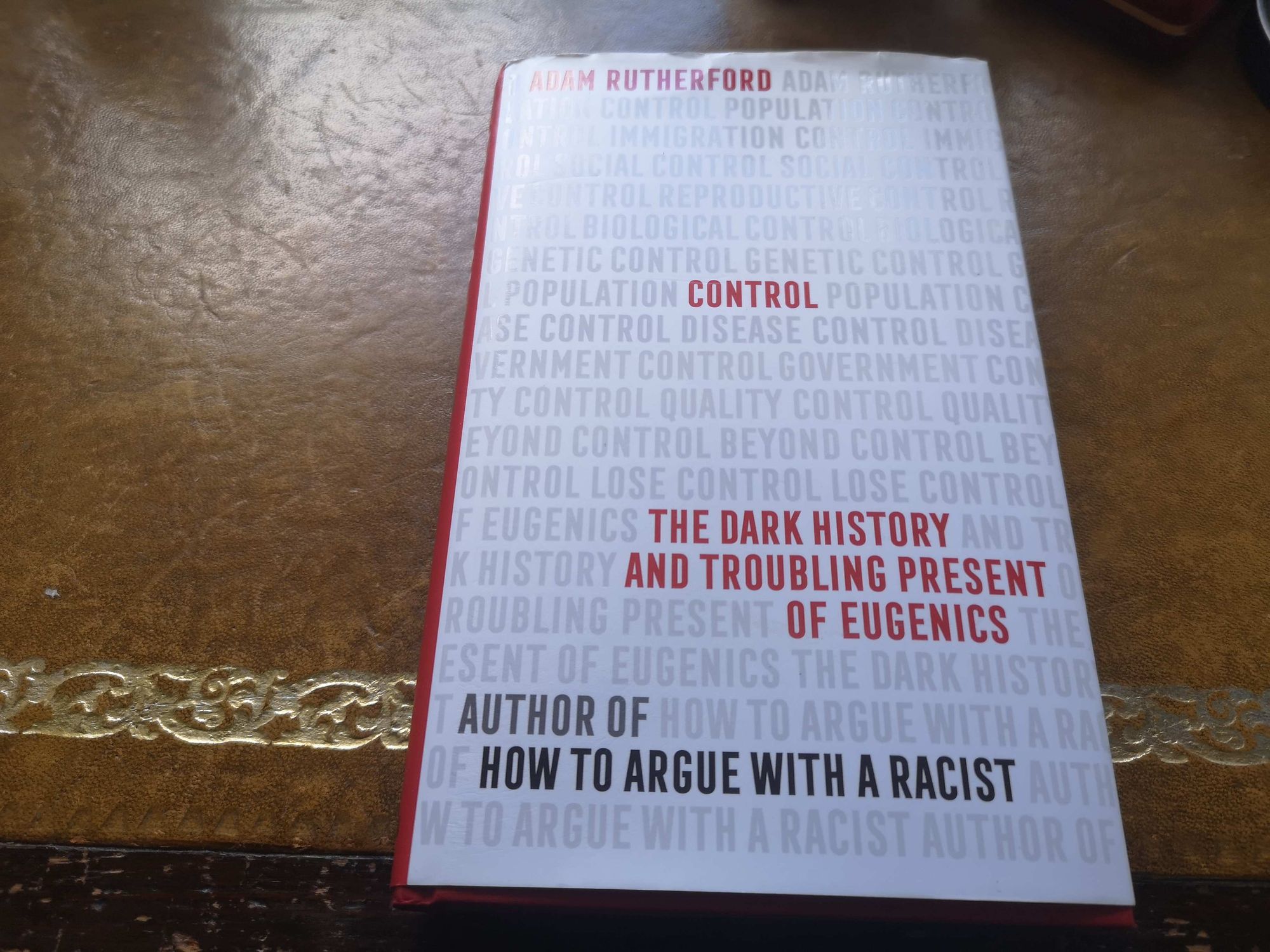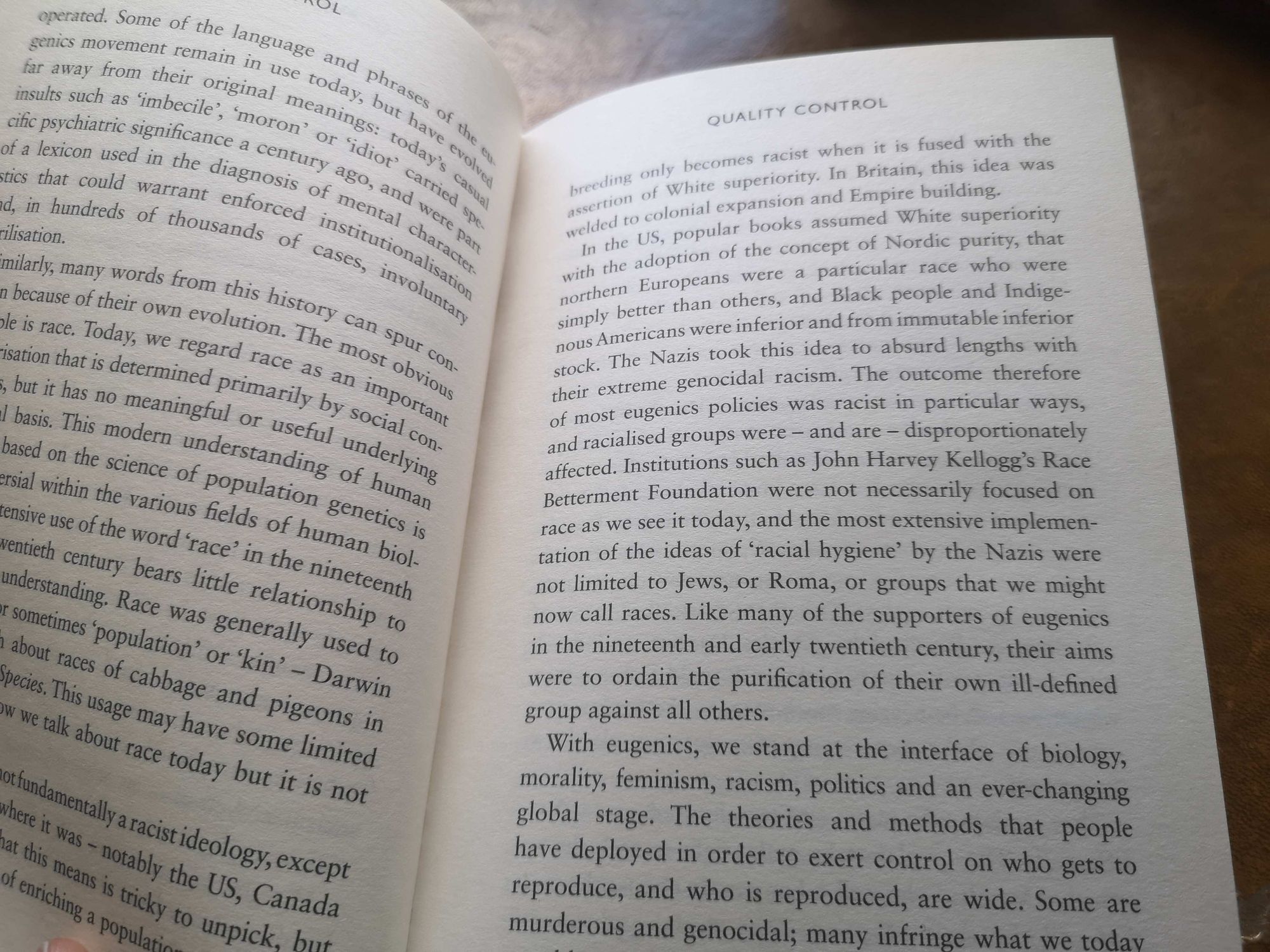By Milan Perera, Arts Critic Columnist
Presenting complex topics of science to the general public is no mean feat. There has been a long line of brilliant scientific minds who took up the mission to bring science to the masses; Arthur C. Clarke, Carl Sagan, Isaac Asimov, Richard Dawkins, Martin Rees and the list goes on. A young scientist who has earned his stripes into this hallowed hall of science writers is the University College London (UCL) based geneticist Adam Rutherford who has been writing on the intricacies of genetics.
His latest title on paperback (February 2023), Control, takes the readers on a less travelled path to demonstrate how science was weaponised by totalitarian regimes, and how it was utilised to legitimise racism.
For Rutherford, this is no abstract project as he is an alumni and a lecturer of an institution widely considered as the crucible of what is loosely known as eugenics. In 1993, Rutherford arrived at the Galton Laboratory, named after the founding father of eugenics for his undergraduate studies.
Francis Galton (1822- 1911) was a colossus of science who exerted an enormous influence on various branches of science from social Darwinism, behavioural science and meteorology. Rutherford’s treatment of the subject is both compelling and engaging where he does not drown the average reader with a tsunami of jargons.

So, what is eugenics? Eugenics, a concept that gained prominence in the late 19th and early 20th centuries, was believed to be a scientific approach to improving the genetic quality of the human population. However, history has revealed that eugenics was not just a scientific endeavour, but a deeply flawed and morally reprehensible ideology that was used to justify racism and discrimination.
The term ‘eugenics’ was coined by the above mentioned Sir Francis Galton, in 1883. Galton believed that by selective breeding and controlling reproduction, it was possible to improve the genetic makeup of the human population, leading to the development of a superior race. This concept was based on the flawed idea that certain traits, such as intelligence and moral character, were hereditary and could be passed down from one generation to another.
The eugenics movement gained traction in various countries, including the United States, Canada, and Germany, and was supported by influential scientists, policymakers, and intellectuals. Proponents of eugenics argued that by promoting reproduction among those deemed ‘fit’ and restricting or preventing reproduction among those considered ‘unfit’, the human race could be improved.
One of the most disturbing aspects of eugenics was its role in legitimising racism. The ideology of eugenics was often used to justify discrimination against certain racial and ethnic groups, particularly those considered ‘inferior’ or ‘undesirable.’ Pseudo-scientific theories were propagated to support the idea that certain races or ethnicities were genetically inferior, and thus should be prevented from reproducing in order to protect the purity of the ‘superior’ race.

In the United States, for example, eugenics was used to justify policies such as forced sterilisation of people deemed ‘unfit’ to reproduce, including those who were poor, disabled, or from marginalised communities. These policies disproportionately targeted people of colour and were based on the false belief that some racial groups were inherently inferior and needed to be controlled or eliminated for the betterment of society.
But, above all, the most chilling manifestation of eugenics was unleashed by the Nazis during World War II that led to the Holocaust which claimed the lives of six million Jews. The Nazis, under the leadership of Adolf Hitler, not only embraced the concept of eugenics but used it as a central pillar to legitimise their racist and discriminatory ideologies. The Nazis developed their own version of eugenics, which they referred to as ‘racial hygiene’, and used it to justify their policies of genocide, ethnic cleansing, and the pursuit of a so-called ‘master race.’
The Nazi regime believed in the superiority of the ‘Aryan’ race, which they considered to be a pure and superior race of people of Germanic origin. They sought to protect and promote this race by eliminating what they considered to be ‘inferior’ races, such as Jews, Romani people, people with disabilities, LGBTQ+ individuals, and other marginalised groups. They used eugenic principles to justify their genocidal policies and to promote the idea of racial purity.
The legacy of the Nazis' misuse of eugenics to legitimise racism is a dark and painful reminder of the dangers of pseudoscience and unethical applications of scientific concepts. It serves as a stark warning of the need for ethical conduct in scientific research and the importance of vigilance against ideologies that seek to use science to justify discrimination, racism, and other forms of oppression.
In today's world, inclusivity and diversity should be at the forefront of scientific research. It is essential to recognise the inherent value and dignity of ALL human beings, regardless of race, ethnicity, or any other characteristic. Diversity in scientific research promotes innovation, fosters a broader understanding of complex issues, and ensures that the benefits of scientific advancements are accessible to all.
Featured image: Epigram/Milan Perera







